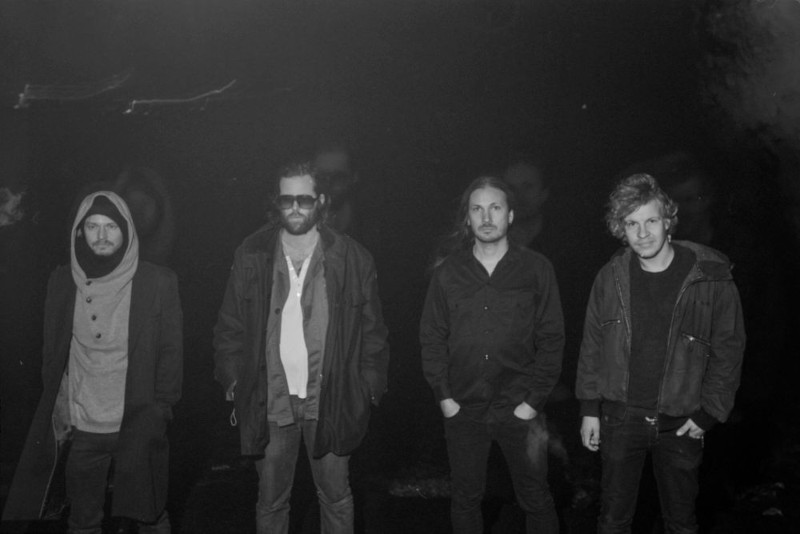 HUNDRED HEADLESS HORSEMEN is a psychedelic death metal band hailing from Helsinki Finland. The band was born during a pre-apocalyptic heat wave in 2014 as a result of an odd twist of faith, when one of the members received a postal package containing a skull of a reindeer killed by a wolverine. This rotten skull seemed to be an amalgamation of an overwhelming stream of darkness that had long wanted to talk through them. The band locked themselves into the pitchblack night of their hideout with no preconceptions or plans made beforehand. The results of these sessions were released in 2015 as their self-titled debut EP. The skull spoke about the forces that human minds were unable to fathom, in the dark forests just beyond their backyards. It laughed at fantasies of nature as a harmonious or wholesome entity. The devoured reindeer skull suggested instead, that it should be seen as an intricate balance of discordant powers driven only by the will to survive. And that will was a power whose weight we were all too incapable of conceiving. Because survival knows no conscience. It is the momentum that keeps the circle of life in rotation, where death, darkness and decay are necessities for life and not its antitheses. These teachings directed the band to a path of discovery that led first to the creation of their second EP titled “Hexagon” in 2016. After which the HUNDRED HEADLESS HORSEMEN embarked on a continuation of this self-reflective journey, deeper into uncharted territories. Navigating this barren landscape for years with no map, guide or compass to speak of, they came across fragments of written articles about formerly unknown psychoneurological symptoms. What they learned during these years and out of these texts is presented in their first full length, a concept album titled after the condition described in these articles: “Apokalepsia”.
HUNDRED HEADLESS HORSEMEN is a psychedelic death metal band hailing from Helsinki Finland. The band was born during a pre-apocalyptic heat wave in 2014 as a result of an odd twist of faith, when one of the members received a postal package containing a skull of a reindeer killed by a wolverine. This rotten skull seemed to be an amalgamation of an overwhelming stream of darkness that had long wanted to talk through them. The band locked themselves into the pitchblack night of their hideout with no preconceptions or plans made beforehand. The results of these sessions were released in 2015 as their self-titled debut EP. The skull spoke about the forces that human minds were unable to fathom, in the dark forests just beyond their backyards. It laughed at fantasies of nature as a harmonious or wholesome entity. The devoured reindeer skull suggested instead, that it should be seen as an intricate balance of discordant powers driven only by the will to survive. And that will was a power whose weight we were all too incapable of conceiving. Because survival knows no conscience. It is the momentum that keeps the circle of life in rotation, where death, darkness and decay are necessities for life and not its antitheses. These teachings directed the band to a path of discovery that led first to the creation of their second EP titled “Hexagon” in 2016. After which the HUNDRED HEADLESS HORSEMEN embarked on a continuation of this self-reflective journey, deeper into uncharted territories. Navigating this barren landscape for years with no map, guide or compass to speak of, they came across fragments of written articles about formerly unknown psychoneurological symptoms. What they learned during these years and out of these texts is presented in their first full length, a concept album titled after the condition described in these articles: “Apokalepsia”.
Interview: Valtteri Virolainen Guitars, Vocals; Antti Sundberg – Guitars; Miika Tams – Bass; Anssi Soininen – Drums
Welcome! Could you please introduce yourself to our readers? What does the act of making music mean to HUNDRED HEADLESS HORSEMEN? What has been your biggest challenge?
HUNDRED HEADLESS HORSEMEN is a psychedelic death metal band hailing from Helsinki Finland. We blend together different subgenres from the past and present timeframes to create our own version of death metal. The story of this band begins from a pre-apocalyptic heat wave in 2014 during which one of the members received a postal package containing a skull of a reindeer killed by a wolverine. This rotten skull seemed to be an amalgamation of an overwhelming stream of darkness that had long wanted to talk through us. It made us lock ourselves into the pitchblack night of our hideout with no preconceptions or plans made beforehand and ultimately after a long path of discovery has brought us here.
The greatest challenge, but simultaneously also the most exciting experience , on our journey so far has definitely been diving into the realm of “Apokalepsia” and to bring the whole experience into the form of a coherent concept album.
Please, describe your approach to composing music? Yours songs are very variously… What is the essence of good song for your band?
We tend to work together on everything, it seems like the most fruitful way of approaching any creative endeavor. We are firm believers in the hive mind method of working. Any one of us can bring the original idea, a riff or a section to the others but only after trying them out together do they take on a life of their own. In a way, the process of “composing” is actually more a process of listening.
The essence of a good song for us is generally its ability to take the listener on a journey somewhere out of his or her present time and place, this is something that we always aim for. With the songs on the new concept album, “Apokalepsia”, we focused a lot on how all the songs work together to form the world that they are describing. There is an overall story arch going through all songs in the album; from first to the last.
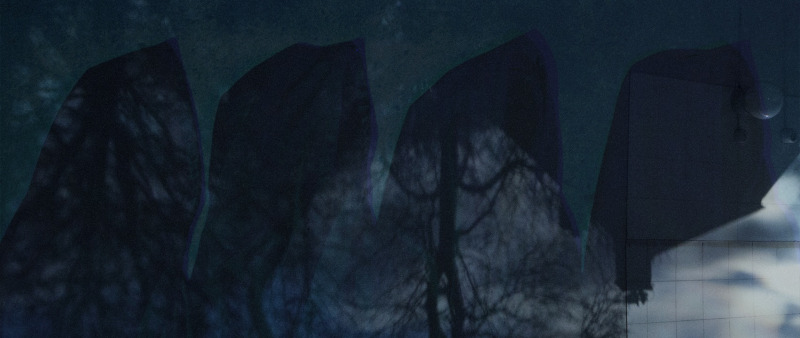
How does the new record compare to the pasts EP’s? Do you feel that this is a more substantial representation of what you were looking to convey as an artist?
We definitely feel that the new album is a better representation of what we are trying to convey through our music at least at this point in our journey. Also, we all knew we were working on something that resonated with something deep inside us that we wanted to share with the world. In a way it does feel that we are only at the beginning of our path together, because the creative process for this longer work, and especially a concept album, taught us so much about what we want to immerse ourselves with in the future as well. One important factor that we hope we can preserve in our creative process is that we are able to maintain our ability for listening where the energies that have spoken through us so far want to take us. This is something that one cannot take for granted.
What kind of progress or development do these two EP’s mark for the band since its formation in 2014? How were the older records received by the fans back then? How would you describe the evolution of the band’s sound?
Creating and recording our very first, self-titled, EP was quite a trip for us all. We locked ourselves into our hideout and recorded all the songs live during one weekend without a moment of rest to preserve the raw energy that was flowing through us. Naturally we have evolved our sound and broadened our palettes of expression quite a bit in the years to come, but the drive that can be heard on this first EP is what has kept us going and creating music up until this day. On our second EP Hexagon, we started opening up our sound for more experimentation with more layering, For example with the occasional clean vocal phrases and leaps to a more progressive style of metal . It now feels like quite a natural stepping stone towards our latest work, “Apokalepsia”, where we took all these ideas further and brought in a lot more experimentation and progressiveness.
The EP’s were well received when they were released, as well as the live shows that we performed to support them. Especially some of the live shows gave us the understanding of the music as an entity, not only the music itself but all the other art forms that can be combined to the experience to tell the story of HUNDRED HEADLESS HORSEMEN. What we have learned during the time is a lot about the process of listening, whether it is the other members of the band or whether it is the energy that tries to speak through us in our music.
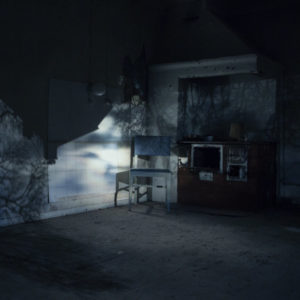 Musically and lyrically, where did inspiration come for the “Apokalepsia” album?
Musically and lyrically, where did inspiration come for the “Apokalepsia” album?
We were interested in exploring how a large part of our perception of reality is actually forged by fictional stories or distorted perspectives. With enough power of persuasion, it is possible for a large number of us to fall under collective delusions regarding the nature of the reality surrounding us. A particularly dangerous example of these delusions is the fact that as we are speeding towards an ecological disaster at a rate which should make us question the very foundation of our societies, it still seems easier for us to imagine the demise of the nature that created us, than a change in the economical system that is a creation of our own imagination. Even with stakes this high, it seems impossible for us to tackle the persuasive power of the system we have internalised.
What kind of counterforce could then shake us out of this illusion and to shift our perception? Did we need a warning to go off inside our own bodies to see what the larger biomass around us was already experiencing? As it happens, when we were working on this project, these questions, or at least some derivatives of them, were suddenly on the forefront of human minds everywhere. What we are suggesting is that the change in perspectives could be happening already. Whether it is because of a virus or a paralysis caused by a failure to function in a world defined by disaster, the stories told today are not the same ones that have been told for the last couple of centuries. What “Apokalepsia” ultimately deals with is the imminent shift in the center of our universe, the shift away from anthropocentricity and the numerous pathways that can lead into it.
What is the most gratifying aspect of undertaking a debut album such as this?
We feel that we have managed to create a coherent whole, a microcosm that the listener can truly step into, where all the little details work to create a sum greater than its parts. We feel very satisfied to have an album that tells our journey and thoughts in a way that is even for us surprising on every listen. We sense that there is an energy that has gone through us to the album that can not be explained. We were also very happy with how the visual artwork turned out, for which we owe a great deal to the visual artist and photographer, Karl Ketamo (https://karlketamo.com) who worked with us in creating it. The cover photo of the album really transmits , in visual terms, what the realm of apokalepsia represents to us in a single image. A glimpse of the unknown and a portal to another dimension if you will
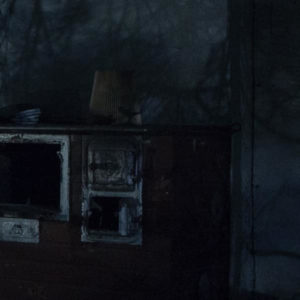 If you had to highlight one particular track, what would it be and why?
If you had to highlight one particular track, what would it be and why?
For the reason mentioned in the previous question, it is unfortunately very hard to highlight any particular track above the rest because they are meant to be experienced together. However what we would highlight are the ambiences between the songs and how each song unfolds into these passages that give hints to the listener where the story might be heading to around the next corner.
Who would you say are some of your biggest influences?
Our influences are quite far and varied, ranging from the prog and kraut legends of the 70’s through old school death metal of the 90’s to contemporary classical and electronic music. We have chosen death metal as our tool to tell our stories, but we do not limit ourselves strictly to this genre box and we do listen to a wide variety of music that influences our own art. e What we could call our “biggest” influences varies through time and to give some insight into what is inspiring us right now, we have collected a playlist to share our influences. The playlist can be found here: https://spoti.fi/3Dqp9Lp
Do you have any favorite band amongst the bands today or any favorite amongst the metal bands from the 90’s?
Recently, we have been listening to a lot of Icelandic black metal, the scene over there seems really vibrant. A lot of the acts, like Auðn, ZHRINE and MISÞYRMING for example, seem to be able to combine the raw abrasive power black metal with atmospheric and psychotropic tendencies in a way that really resonates with us.
The whole post-metal phenomenon has also been fascinating as the artists classified under this term have really shown how dismissing the past conventions of metal has resulted in some of the most emotive and powerful music in the whole genre. The “post-metal” genre label in itself is slightly problematic and a lot of the acts classified as such have been, understandably, avoiding the use of the term themselves. One can wonder, for example, where are we supposed to move after “post-metal”, would it be “post-post-metal”? It is also slightly counterintuitive to classify a genre based on the aversion of certain conventions when in the course of time the genre itself has of course created its own conventions as well. But however one likes to classify acts such as NEUROSIS, OLD MAN GLOOM, SUMAC, ISIS, SÓLSTAFIR, CULT OF LUNA, DEAFHEAVEN and WOLVES IN THE THRONE ROOM, their music has certainly provided us with a huge source of inspiration. Then there are of course acts that, by sounding unlike anything but themselves, have created almost a genre of their own, like SUNN O))) and SWANS.
We have a lot of favourites from the 90’s also, a couple that need to be mentioned here are probably DEATH and ENTOMBED, who were both spearheading the development of death metal on their own respective fronts when the whole genre was still being molded. But we prefer not to get overly nostalgic about the proverbial “good old days”, since we feel there has never been a greater amount of awesome music being put out all the time, all over the world, than today.
What do you think about the Finnish Metal scene? Are there any bands that you especially like?
It is pretty well known around the world that metal is very popular in Finland. This means that there is a huge pool of talented metal musicians in the country and good infrastructure to support the numerous bands that can be found here. As a phenomenon, metal has become very mainstream in Finland which has, perhaps, pushed the more interesting acts to the margins. But some of these marginal scenes are really thriving, for example the bands from the Tampere area like ORANSSI PAZUZU, DARK BUDDHA RISING and ATOMIKYLÄ have been raising eyebrows around the world in recent years by pushing the boundaries of metal music in general. The same could be said about the scene around the town Pori that has for example given birth to some very unique acts like Circle.
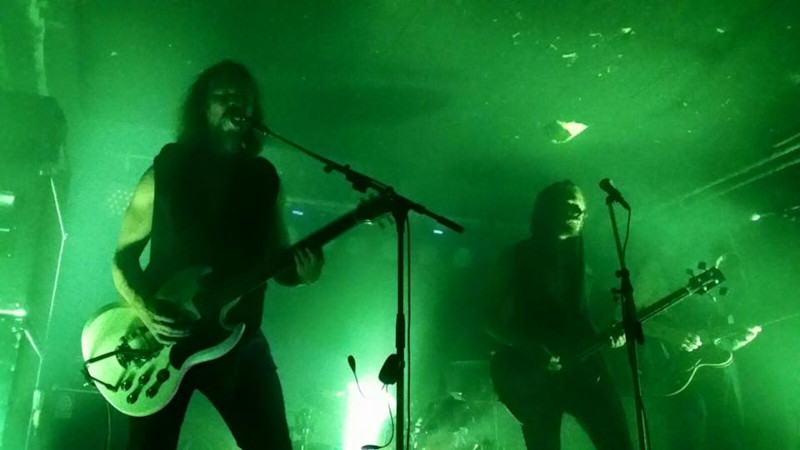
What do you think about people streaming music instead of buying physical records now a days? How do you think the music industry have changed because of this?
There has been quite a heated debate on the earning logic in the music industry today and quite rightfully so. Streaming services are very convenient for music fans to discover new music even on the go and we don’t think that the blame for the unfair division of income in the music industry nowadays should be put on music fans. It is unfortunate that the big players in the streaming game are not really looking out for the interests of the artists that are making the whole business model possible. There really needs to be a reorganisation of how revenue is shared in these services as it has become clear that artists that have for long been reliant on touring income alone have been in deep trouble during the pandemic.
The very welcome exception to the rule among the streaming platforms during the recent years has been Bandcamp. They have been growing steadily and music fans have certainly embraced their ”fair trade” approach to creating a working online platform for artists and labels anywhere in the world. With their recent addition of including an option for ticketed streaming shows etc we can only hope they can really challenge the companies running the show today. Die-hard music fans still want to support the artists directly and Bandcamp is giving the artists an easy-to-set-up and fair platform to let their fans do just this. The other streaming services might be useful for artists in being discovered in the first place, through their playlisting options etc, but beyond that the systems are not really built to support the artists.
How do you think you and HUNDRED HEADLESS HORSEMEN came to be seen by the media? (In Finland, for example)
Oddly enough, we have been getting a lot more attention with our latest release from outside Finland. This might be in part because the metal media in Finland is quite genre specific and maybe our latest release does not fit too well in a particular genre box. All in all our latest work has been received very well internationally and we hope that this will also lead to us getting a chance to perform for our fans abroad at some point and in some form later on. We are very interested to explore this path as it is something that could be the next step on our journey to tell the story of death, darkness and decay.
In the end I would like to thank you for your time and for the interview, to wish you the best of luck and inspiration in the future!
Thank you and the best of luck to you too! Hic sunt dracones.
ALL

